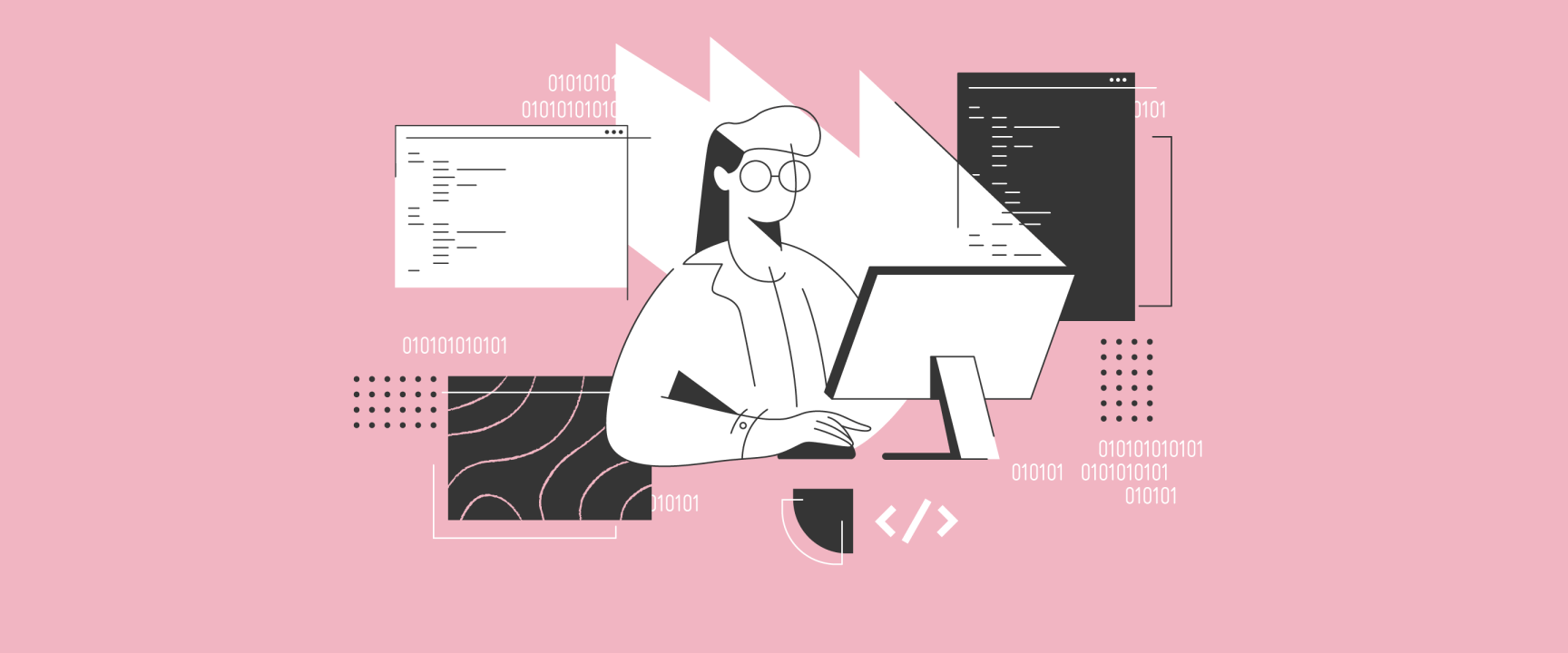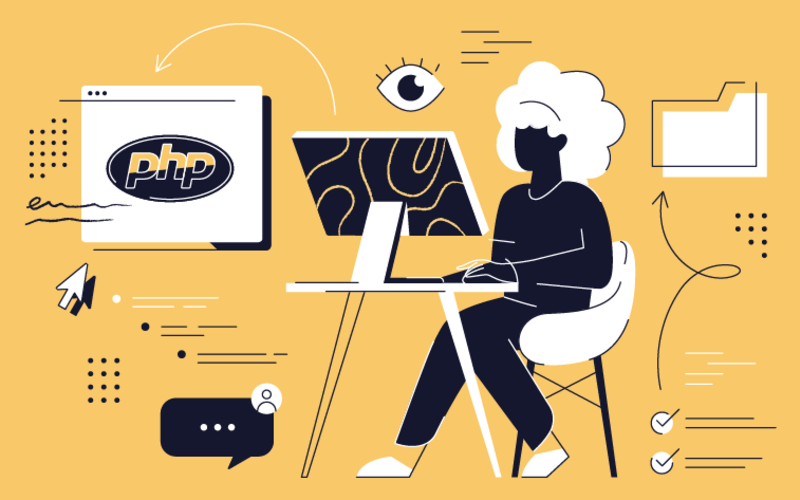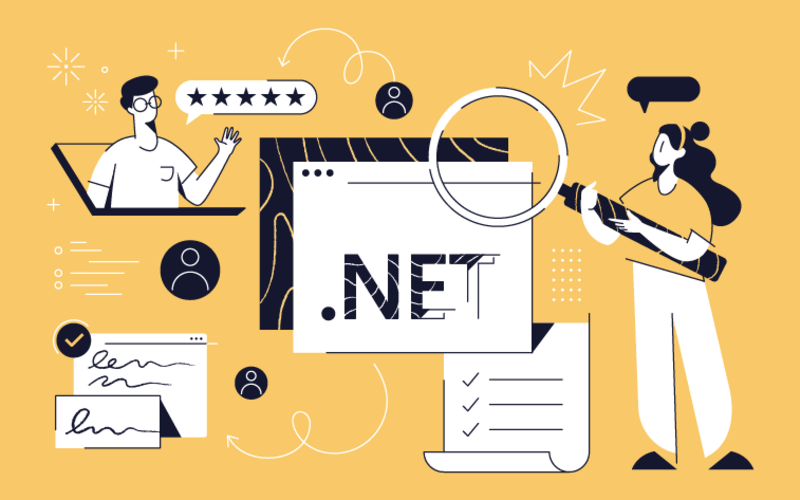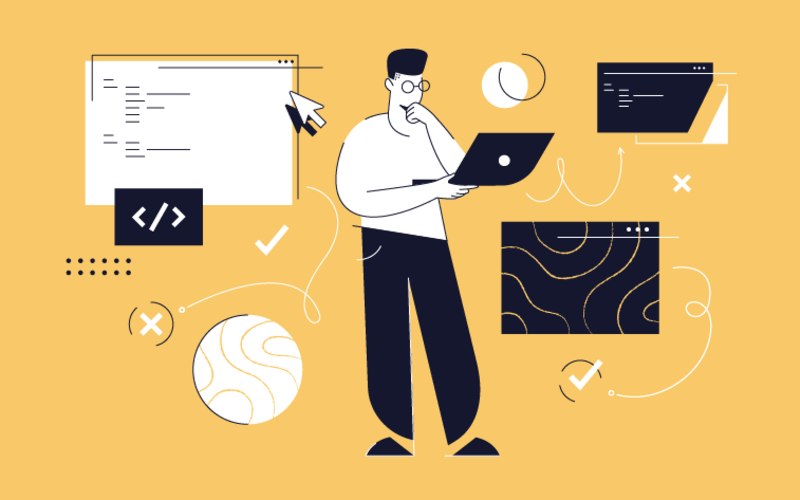When you look for developers (or other professionals), you also look for personality, not just the past work experience and a college degree. In this context, it doesn’t hurt to prepare ahead of the interview you'll conduct.
These tech experts have many years of experience and are more than just the sum of technically complex work and coding. The senior dev should reflect a team culture, company culture, work dynamic and flow, and even have the skills to manage a team of devs on their own.
At this point, when a candidate comes with a proven track record, it can be tricky to assemble the correct questions for the interview. You don’t want to come off as if you’re interviewing a junior developer, or like you micromanage, or to focus just on technical skills and nothing more. In the sections below, let’s see what questions are usually considered for interviewing senior developers.
Senior developer work explained
A senior developer is responsible for software maintenance and testing. This is a complex process that entails many factors, including writing efficient code, debugging, optimizing, and more. In turn, the senior dev is also somewhat responsible for the output of the development team, ensuring that everyone is on the right track and providing quality work on time.
They should work well without being managed and supervised constantly, and it’s expected of them to take the initiative and be proactive with their team members. At senior levels, it is common to have experience working with more team members. The senior dev should also be prepared to solve problems and utilize top-notch technologies to build robust, performant and reliable software.
They should master the most popular programming languages (specifically and generally), prioritize and plan, take the lead in most cases, and overall lead the workflow and the team.
What you need to know before interviewing the developer
Now it’s time to get more practical. Before the interview, you should define the length and categories of questions you’d ask (according to the needs for that specific developer role). And don’t forget to let the dev know about the format. If you plan on technical tasks and coding, and the dev prepares for it, do not surprise them with theory talks or a group of interviewers that would overwhelm them unexpectedly.
Mention to them who will conduct the interview, for how long, and what will be asked. This reduces the risk of improper preparation and possible confusion on both ends.
Make every question relevant to your business, the role, and the candidates themselves. You should also anticipate what type of answers you’ll get according to what’s expected from a senior dev. Mark specific points in their resume that are most relevant to you, and you can even get inspired from there to prepare the questions and see if the dev’s a good fit for your company.
Types of questions for senior developers
You can choose to focus solely on specific questions or combine them. Some examples of the general variety questions are:
General
These questions are connected to the personality, whether the candidate is a good culture fit, and how they are self-describing in the context of work.
- What do you know about the latest trends in development that you think are worthy of mentioning?
- In what way do you set professional goals for yourself and your team of developer peers?
- What is a work environment that you’d say is ideal for you?
- How do you keep up to date with emerging trends in development?
- In what way is your development experience perfect for this company (culture)?
- If you have ideas that need to reach management, how do you ensure that you’d ‘sell’ those ideas well?
- Have you ever managed to avoid a problem by recognizing it and offering a solution beforehand?
Expertise
These questions are more specific to the job and explore how tasks are done and how the senior developer leads teams.
- Mention what achievements you are most proud of, and briefly tell us why it’s important for this developer role.
- What do you think about courses, skill improvement, and additional education?
- How have setbacks and challenges made you the developer you are today, and how have you handled them successfully?
- Can you organize engagements well so that the budget is not affected negatively?
- What influences your decision between two or more technologies for a project?
- How do you approach an internal imbalance or conflict within the team?
- How many devs have you had in a development team that you lead in the past?
In-depth and complex
Here, the questions are directed exclusively toward technical abilities. This can refer to the development of the product, its implementation, and the work process in stages.
- If you need to debug a whole system of apps, how do you do it?
- How do you incorporate the Agile framework in the design process of software?
- In legacy codes, what is your best way to resolve issues with maintainability?
- When is it best to use a ‘set’ logic?
- What are the best and most relevant factors you use to design inventory management systems?
Of course, these questions are considered for a more straightforward and neat representation of possible discussion points. You can use them separately, ltogether, or in some other combination. You can always refer to the list below for additional questions that are just as relevant.
Additional questions to consider
- Knowing our company culture so far, how do you think you’d make the team work cohesively and meet the goals?
- How do you plan, conduct, and finalize the design for the scaling systems?
- In what ways do you reach business goals through integration and delivery methods?
- How do you handle the scaling of the RoR or Django app?
- Could you compare NoSQL and SQL, and when is it best to choose one of these two?
- Mention your best way to document your work for any upcoming team members that need to refer to it.
- In regards to Agile environment, what do you like and dislike about it?
- In what way do you check the quality of the architecture? Which instrumentations and graphs would you use?
- Let’s say you have a work engagement that soon starts and must take it on from scratch. Explain which technologies you’d choose and why, and mention what frameworks and additional choices you’d consider to make the end product as good as possible.
The CTO's guide to different hiring models
How to hire for a fast-growing tech company
The takeaway
It helps to know what to focus on when interviewing senior devs. As you noticed, there are more than just one type of questions, and all of them are combined to create a neat set that describe precisely the best and most valued expertise in a senior developer.
When you assess the attitude, expertise, management skills, critical thinking, and problem-solving (in technical and non-technical ways), it’s likely that you’ve covered the general and specific aspects during the interview. From there on out, you’ll decide if and what type of more precise technical assessments you can assign.





